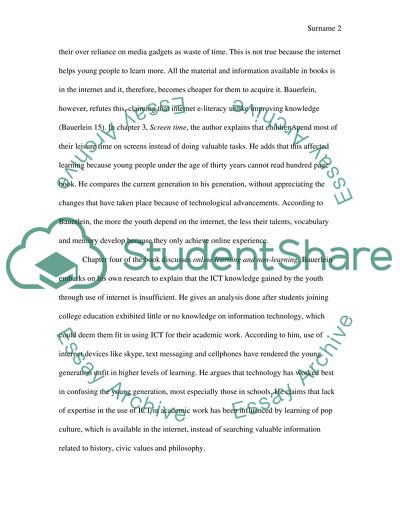Cite this document
(“The dumbest generation by Mark Bauerlein Essay Example | Topics and Well Written Essays - 1500 words”, n.d.)
Retrieved de https://studentshare.org/english/1630813-the-dumbest-generation-by-mark-bauerlein
Retrieved de https://studentshare.org/english/1630813-the-dumbest-generation-by-mark-bauerlein
(The Dumbest Generation by Mark Bauerlein Essay Example | Topics and Well Written Essays - 1500 Words)
https://studentshare.org/english/1630813-the-dumbest-generation-by-mark-bauerlein.
https://studentshare.org/english/1630813-the-dumbest-generation-by-mark-bauerlein.
“The Dumbest Generation by Mark Bauerlein Essay Example | Topics and Well Written Essays - 1500 Words”, n.d. https://studentshare.org/english/1630813-the-dumbest-generation-by-mark-bauerlein.


